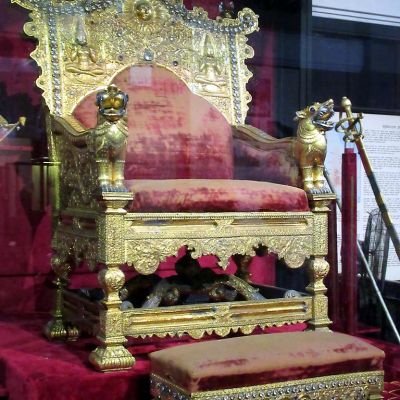Any resemblance in this article to real persons, dead or alive, or other real-life entities, past or present, is purely coincidental.
Once upon a time, there was a royal family.
The ruler of the Kingdom was a King. He had three sons, Duke A, Duke B and Duke C. Duke A and Duke B were each married.
Duke A was in direct succession to the throne. He would one day become king.
Duke C lives in a foreign land.
Countless images reveal that for whatever reason, Duke A’s wife, Duchess A, does not like Duke B’s wife, Duchess B.
She turns her back on her at every opportunity.
Some quietly suggested that Duke A may have bullying tendencies.
Duke and Duchess A do everything within their power to limit Duchess B.
Others in the family follow suit.
After all, they are royal and can do as they please.
Who will hold them to account?
As they attempt to marginalize Duchess B, Duke and Duchess A become downright mean to Duke and Duchess B.
Duke and Duchess B are banished to a remote part of the kingdom, the Boonies.
They are told not to attend important events. When their attendance is rarely permitted, they are relegated to the sidelines. They are ignored, scorned or ridiculed.
The media within the Kingdom is unrelentingly negative in its coverage of Duchess B. Duke and Duchess B are unable to cope with the continual onslaught of unfounded criticism.
No one in the royal family sticks up for them. No one intervenes on their behalf.
Instead, their photo is removed from the King’s wall of prized photos.
Behind the scenes, their daily life is made intolerable.
At the same time, they are expected to remain in and “serve” the Kingdom and the ruling monarch for life.
Duke and Duchess B are employees of the King, the reigning monarch.
Understandably, they are not happy. So, they attempt to negotiate changes to their employment relationship.
No one within the monarchy believes they can really do anything about it. No one will meaningfully negotiate with them.
The King advises his staff he does not want to hear their names spoken.
They realize they have only one option.
They do the unthinkable.
They leave the Kingdom. They move to Utopia, a territory over which the King is a figurehead but over whose courts he does not preside. They state that they will continue to serve the King, but from a distance – from Utopia.
After Duke and Duchess B move to Utopia, the King announces that he agrees with and supports their move.
However, he denies much of what they sought in their physical separation from Duke and Duchess A.
They are told to repay millions of dollars of renovations to their home in the Boonies.
They are told not to use the trade name they created.
The King withdraws financing for their protection officers.
They are prohibited from referring to themselves as “royal”, even though Duke B remains part of the royal family.
Upon their last visit back to the Kingdom, which they dutifully undertook at the Kings’ direction, Duke and Duchess A publicly humiliate them. This spectacle was witnessed by millions around the world.
Duke and Duchess B return to Utopia broken hearted and alone. The injustice of it all sinks in more deeply. Duke B is shaken. His own family pushed him out, and then left him and Duchess B to fend for themselves. Why?
Duke and Duchess A continue to attend state banquets, don expensive attire, and smile for the cameras.
The problem, at least for the Kingdom, is that Duke and Duchess B’s employment ended in Utopia, and they resided there during all relevant times. Employees in Utopia have certain rights.
In Utopia, employees have the right to reasonable notice of dismissal or pay in lieu thereof.
Under Utopian law, someone who has served the King for his entire lifetime, and legitimately expected to remain so employed, may be entitled to sizeable notice of dismissal. This means full compensation over the entire period of reasonable notice.
In Utopia, a constructive dismissal – being involuntarily forced out – is recognized as a dismissal.
Employers with employees in Utopia owe a duty of good faith and fair dealing to their employees. When breached, it may result in a substantial extraordinary damages award.
Wouldn’t it be interesting if Duke and Duchess B commenced a wrongful dismissal action in a Utopian court, against the King, Duke and Duchess A and others who contributed to their dismissal?
Wouldn’t it be interesting if the defendants were named in their personal capacities?
Then everyone would potentially learn much, much more about what went on.
It would be complex litigation. It would be historic.
It could do far more damage to the Kingdom’s monarchy than anyone ever had.
This is a modified version of an article appearing in or around March 10, 2021 in online publications including the Kelowna Capital News. The content of this article is intended to provide very general thoughts and general information, not to provide legal advice. Advice from an experienced legal professional should be sought about your specific circumstances. We may be reached through our website at inspirelaw.ca.
